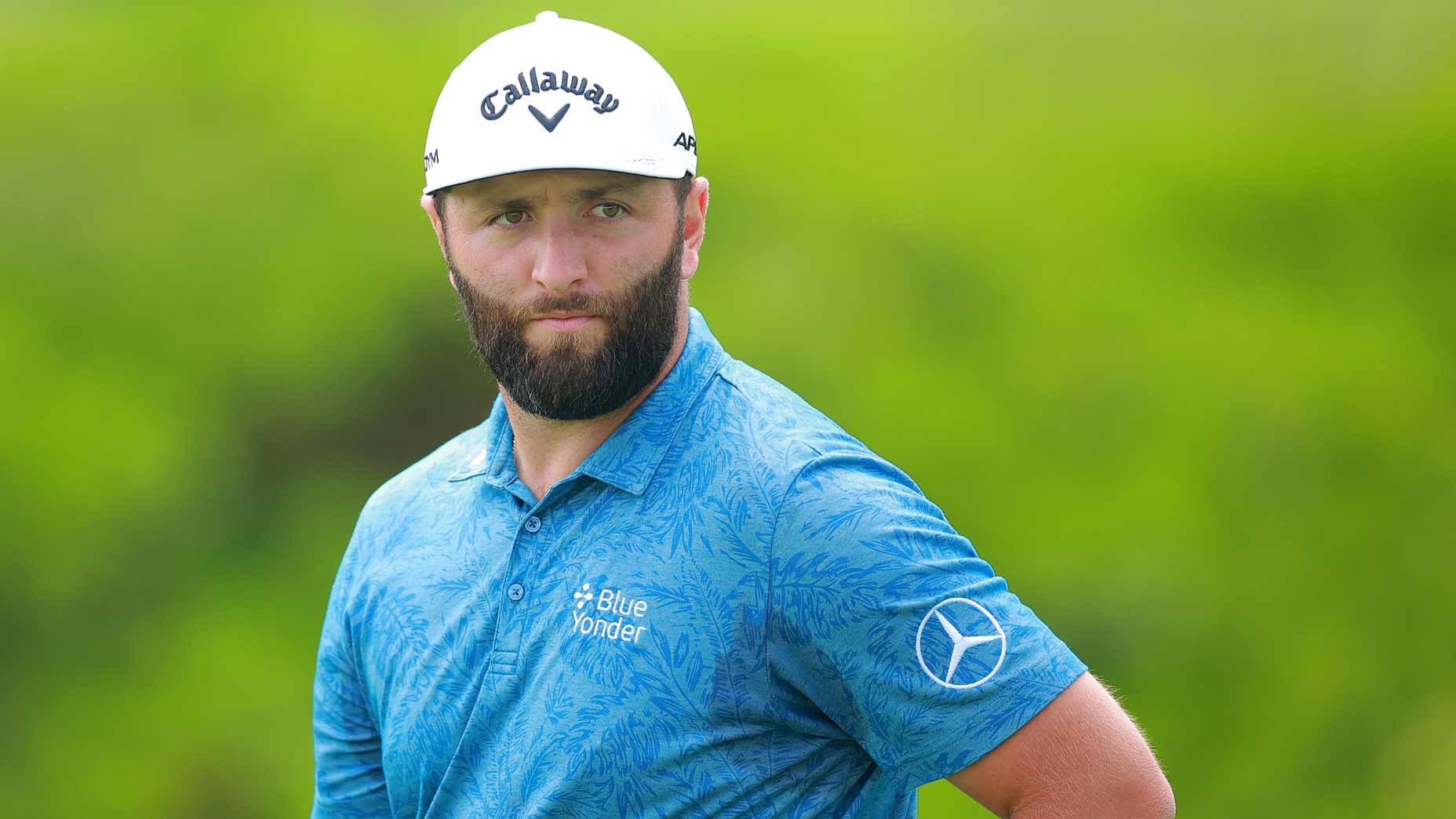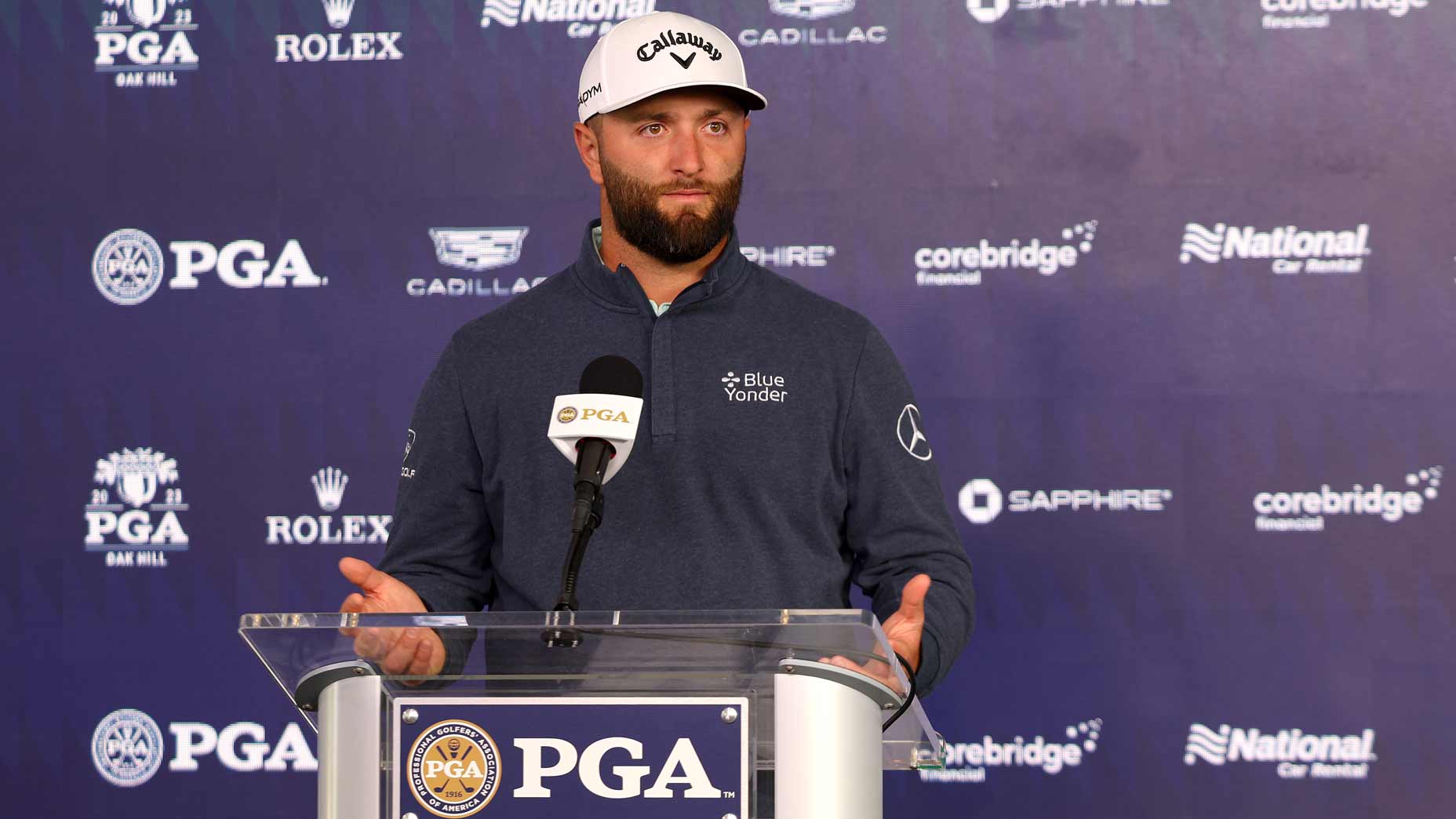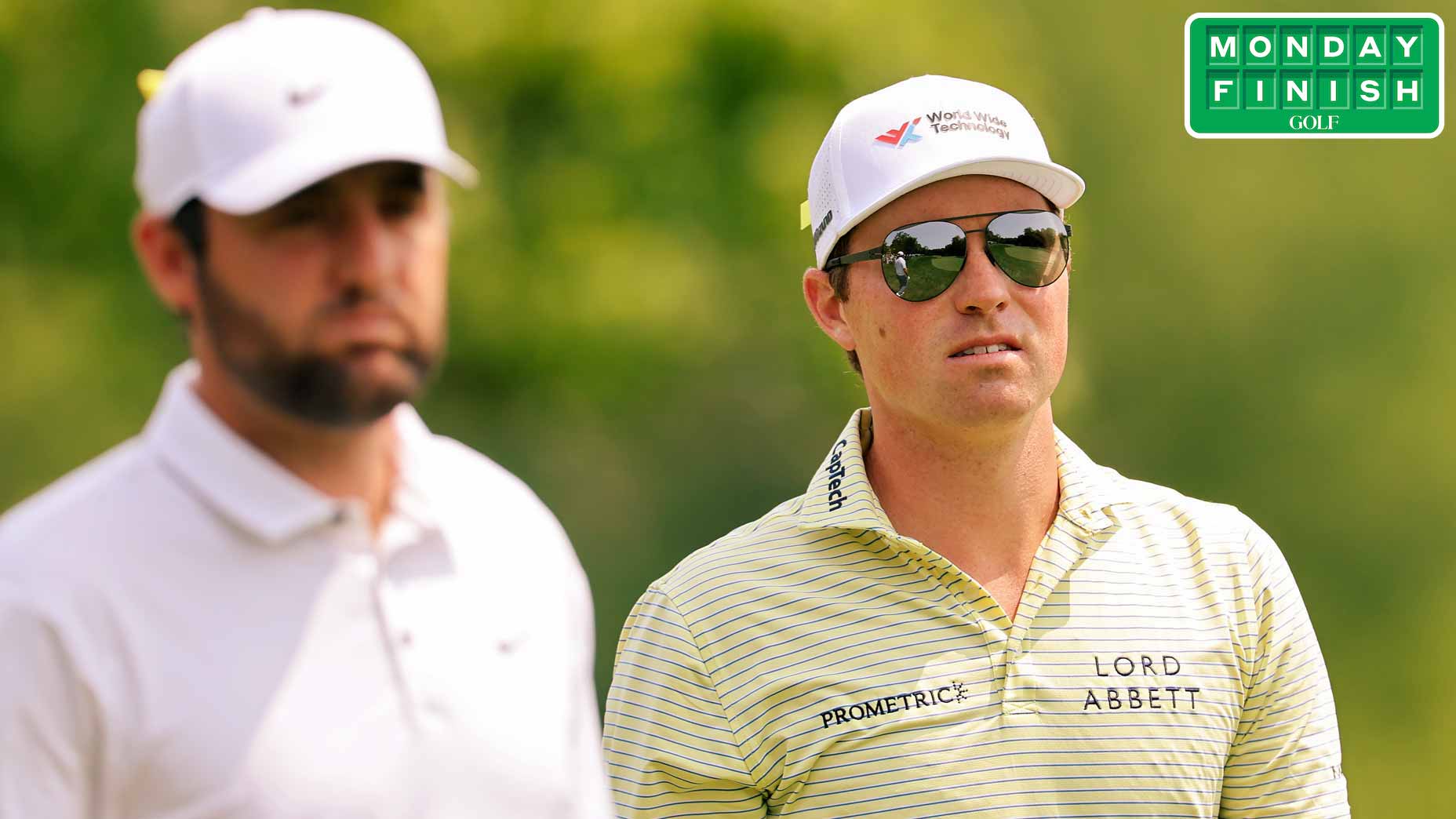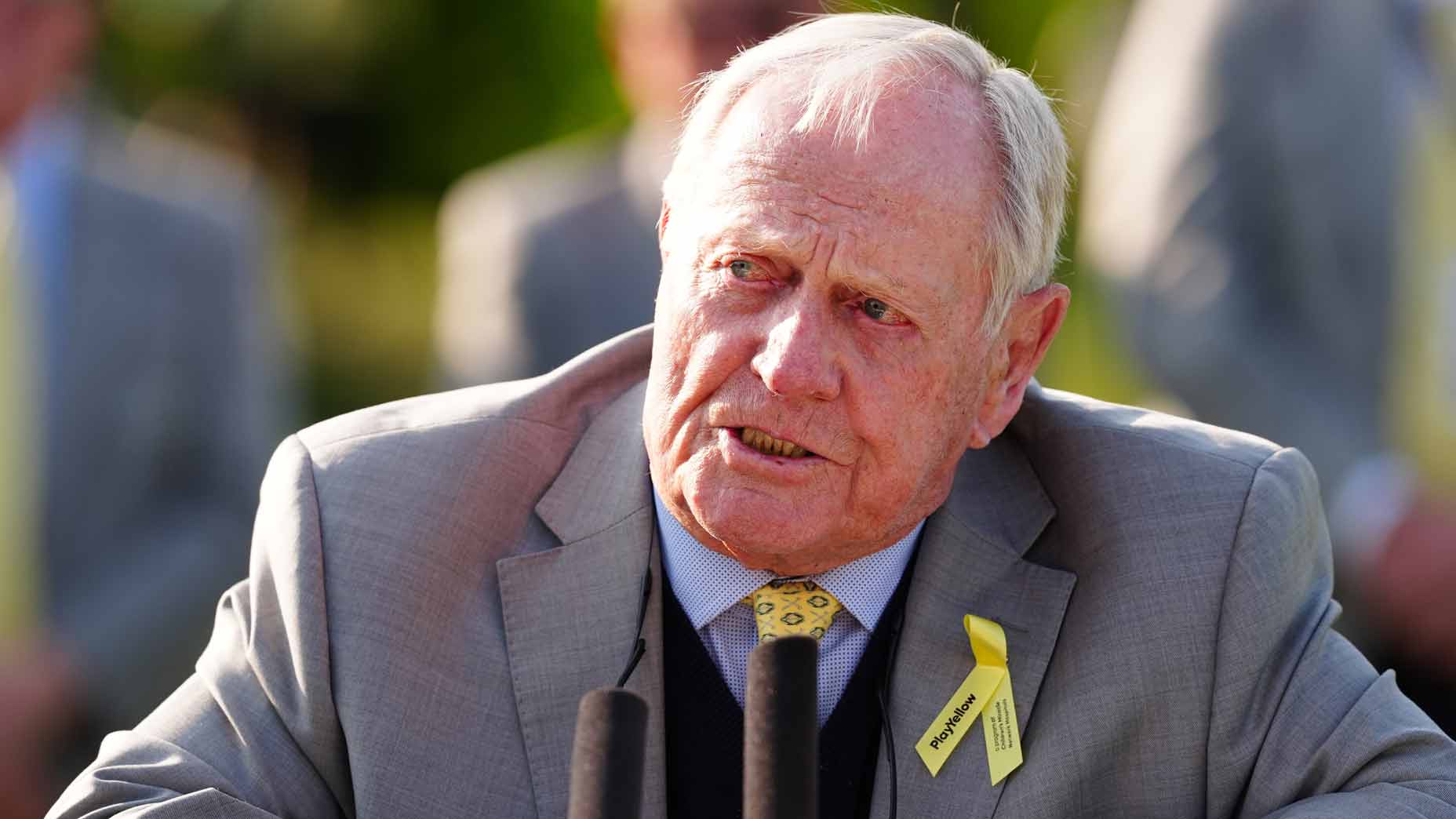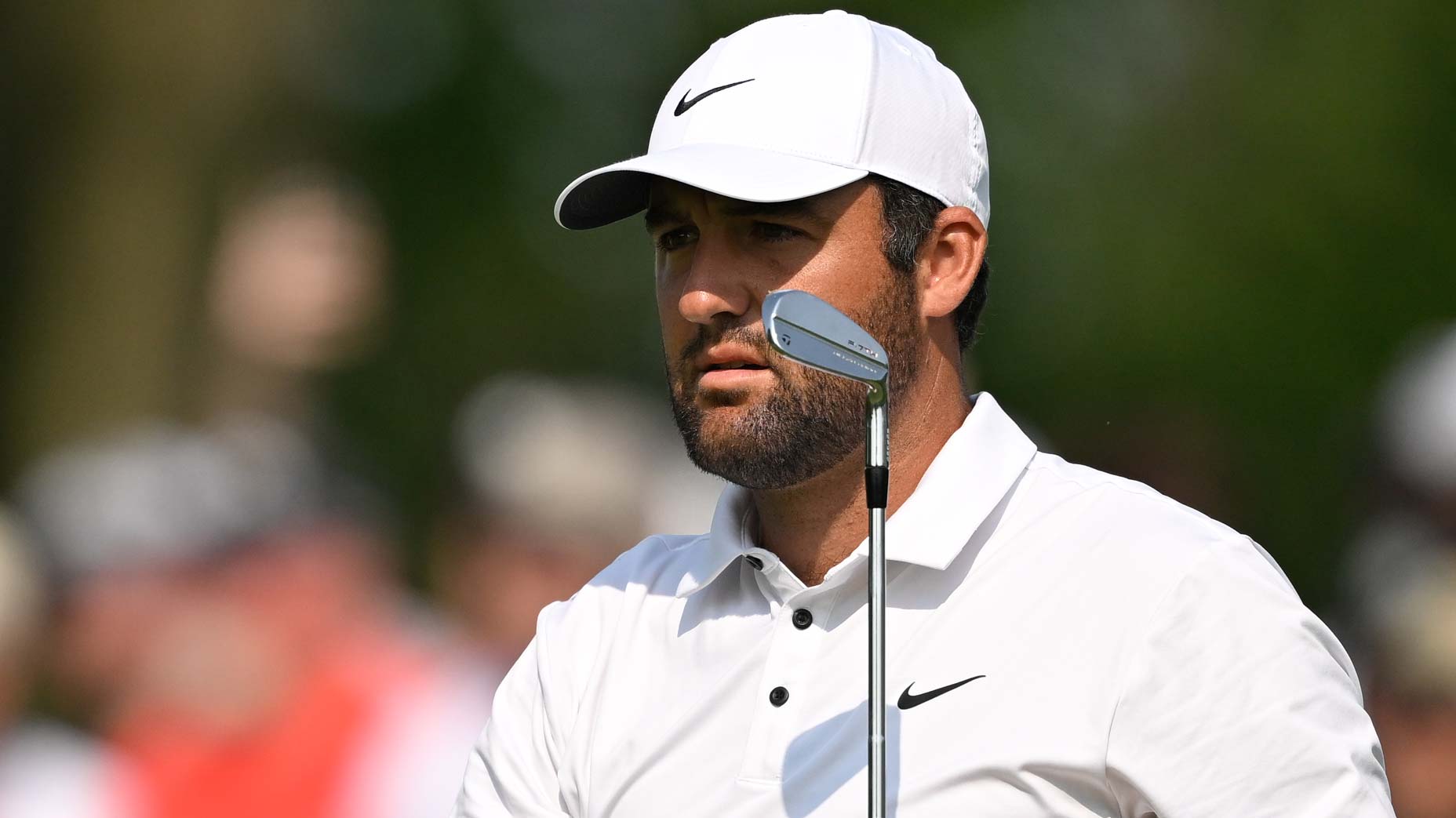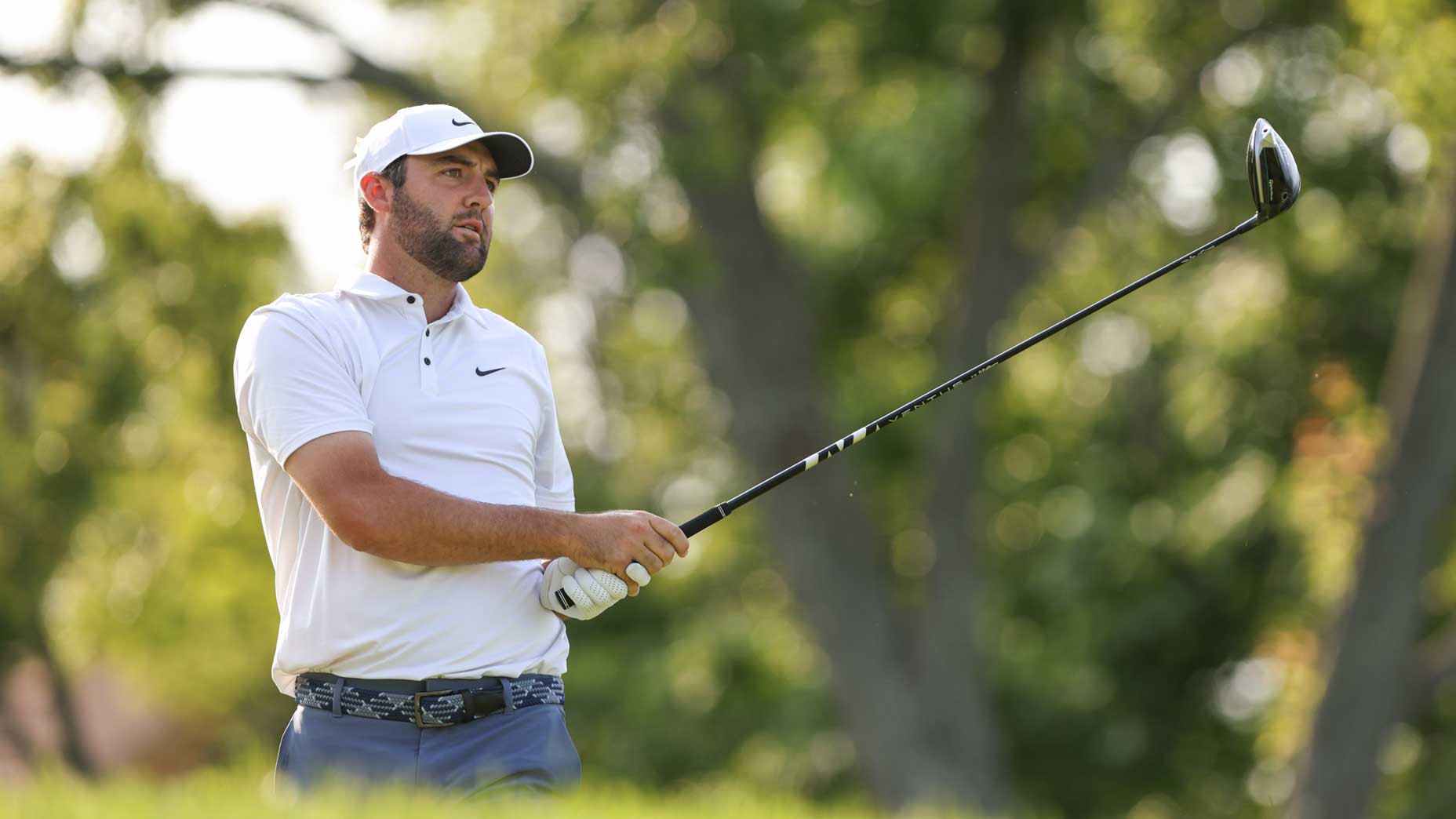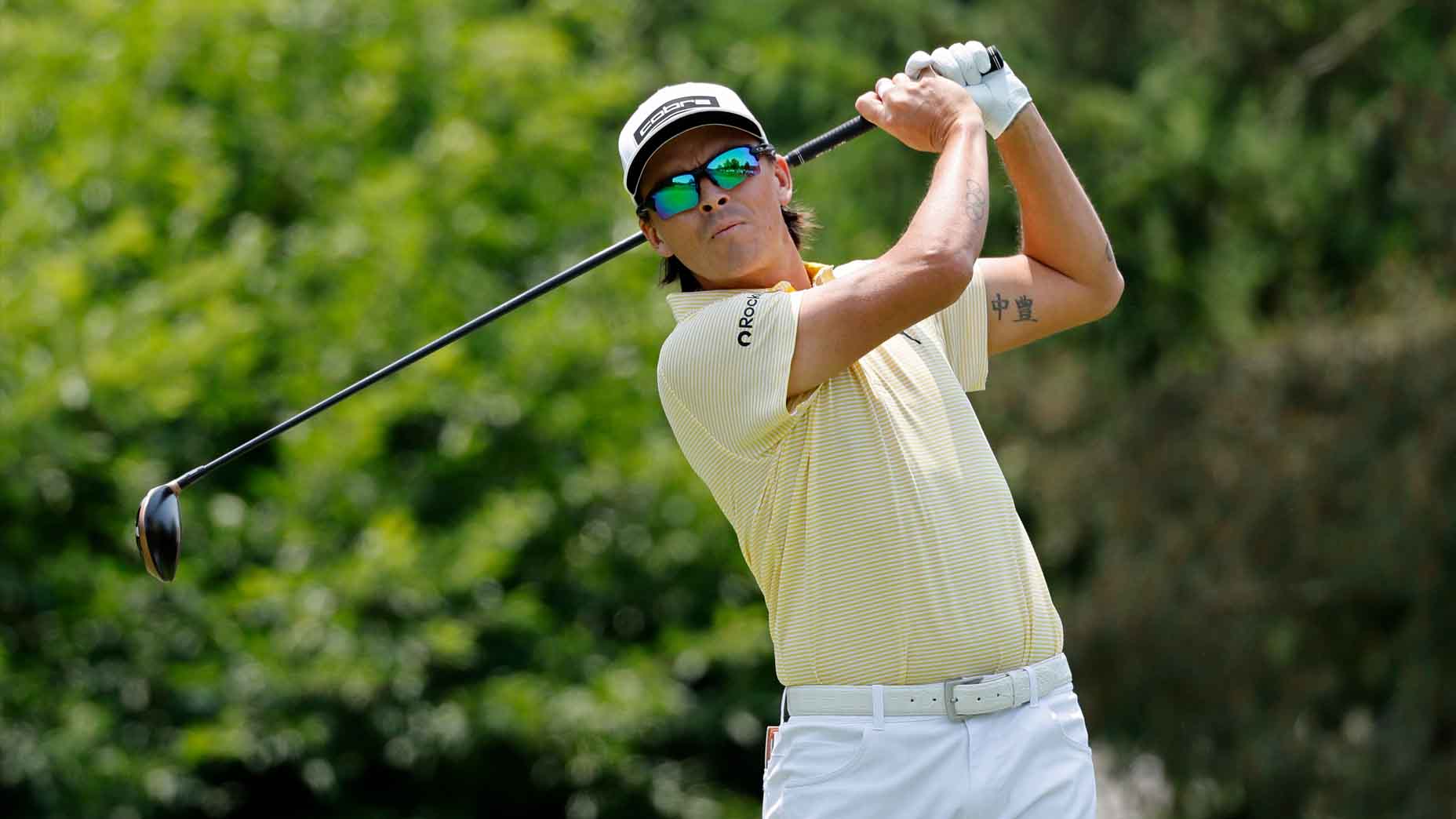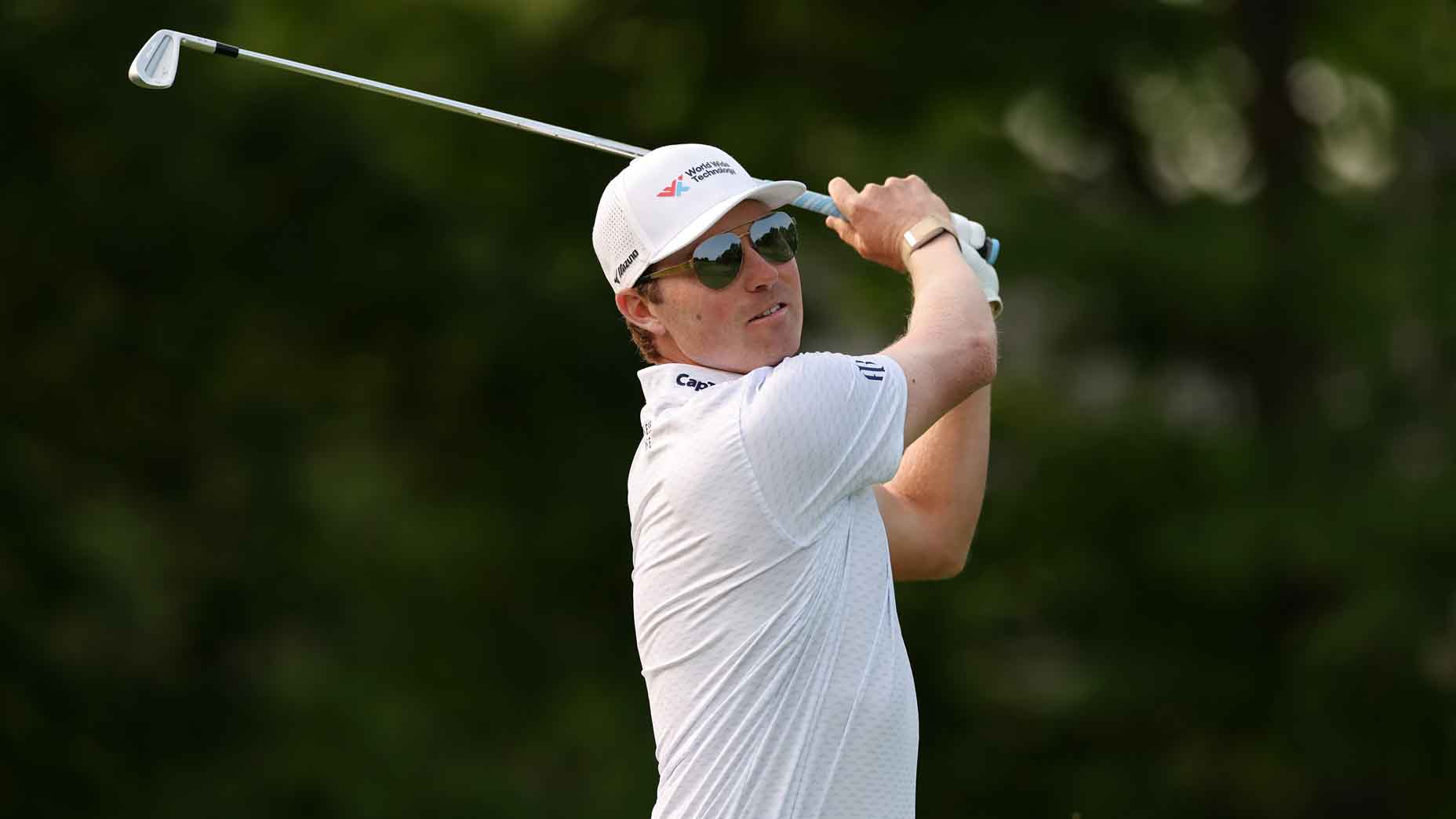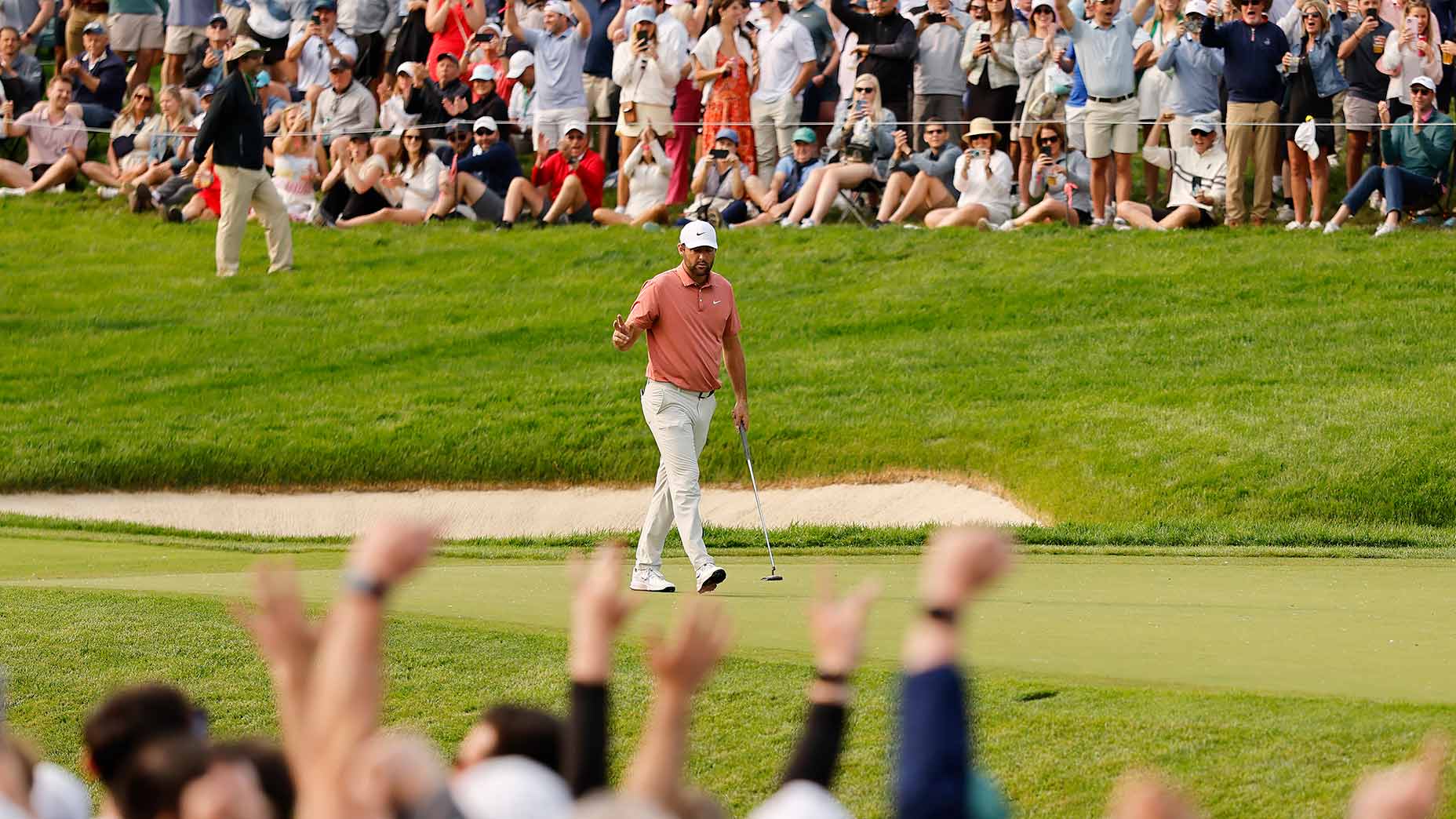Jon Rahm would like to set the record straight. He has yet to comment on the slow-play controversy that took place during the final round of the Masters. We don’t blame him — he was too busy winning it.
But now, Rahm is at the Memorial Tournament — a course he knows well and has won on once (and nearly twice) — and during his Tuesday press conference at Muirfield Village in Dublin, Ohio, he was asked if he thinks slow play on the PGA Tour is an overblown topic.
“Okay. Okay,” Rahm said, “so I think what happened at Augusta was a little bit taken out of context.”
Interesting! Why? Because Rahm wasn’t asked specifically about what happened at Augusta National during the final round of the Masters, but it sounded like he wanted to touch on the topic regardless.
Let’s recap. Rahm and Brooks Koepka were in the final pairing, and Viktor Hovland and Patrick Cantlay were in the pairing ahead of them. A video that showed Hovland walking ahead of Cantlay on the 15th hole was widely circulated, and Koepka was blunt with his pace-of-play assessment following his round.
“The group in front of us was brutally slow,” Koepka said. “Jon went to the bathroom like seven times during the round, and we were still waiting.”
Viktor definitely sending Cantlay a message at this stage of the round. pic.twitter.com/Y70kfAi73K
— TweeterAlliss (Parody) (by Jove) (@TweeterAlliss) April 9, 2023
A few days later, Cantlay, who also received lots of criticism online, defended himself. He said they were already waiting on the 2nd tee, “waited all day on pretty much every shot” and said he imagined it was slow for everyone.
“When you play a golf course like Augusta National where all the hole locations are on lots of slope and the greens are really fast, it’s just going to take longer and longer to hole out,” Cantlay added. “I think that may have been what attributed to some of the slow play on Sunday, and then also when the wind is gusting and the wind is blowing maybe inconsistently, that’s when guys will take a long time, too. I think that’s just the nature of playing professional golf, where every shot matters so much.”
Now, with that context, back to Rahm.
“Patrick and Viktor waited until the 16th hole as well. And then on 16, when you see us waiting, Viktor went long left of the green and Patrick hit it just over the bunker on right, which is a 90-foot putt which has 45 feet of break. It’s going to take a while to hit those shots. And me and Brooks were playing pretty fast. So I understand how it looked, but we didn’t see ’em on 17 and 18.
Jon Rahm never criticizes LIV — here’s the interesting reason whyBy: Dylan Dethier
“A lot of that was because of being on split tees and twosomes. We got to the second hole and Patrick and Viktor were still on the tee. So there was a lot of waiting for everybody, not just them,” he continued. “It’s a tough subject because for the most part when you have a field or, you know, when you have too many players on the field it’s going to be slower. It’s just kind of how it is. So a lot of times I think field sizes make more of a difference. We rarely hear about it in the playoffs when it’s 50 guys on the weekend playing twosomes, right. So it’s about how many groups you have out there. It’s just going to happen. Par-5s are going to get backed up, difficult par-3s are going to get backed up and you’re just going to have to deal with it. Short of putting a shot clock next to each other, and I don’t even think that’s going to help because you have one wayward tee shot and then you’re looking for the ball for a few minutes and then the group behind you is already caught up and you’re waiting. So I think it’s about how many people are on the golf course at the time.”
A very thorough breakdown from your 2023 Masters champion. Although he did add one interesting caveat: “With that said, as well, I think rangefinders would help.”
Rahm’s quest for win No. 5 on the season begins Thursday.
